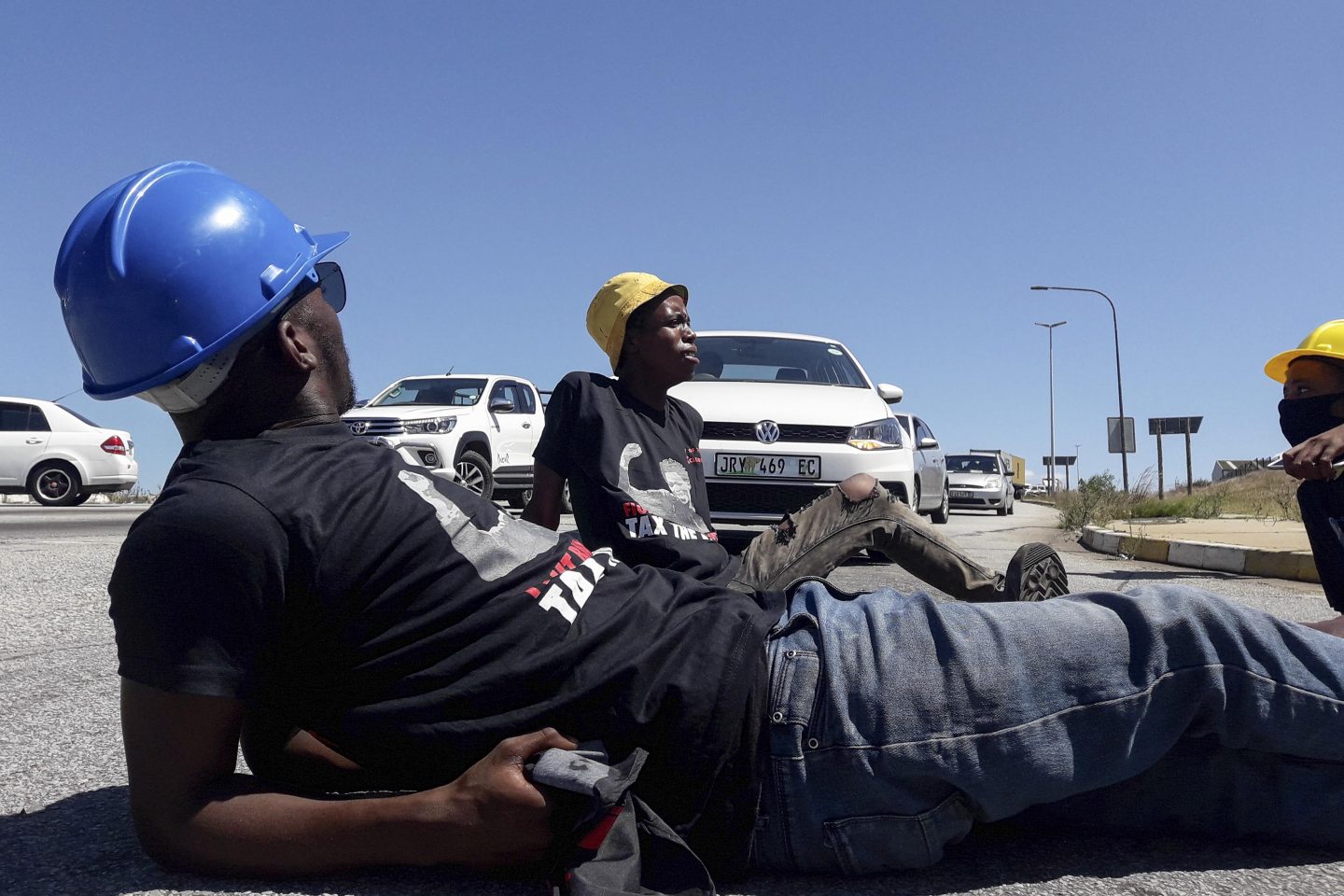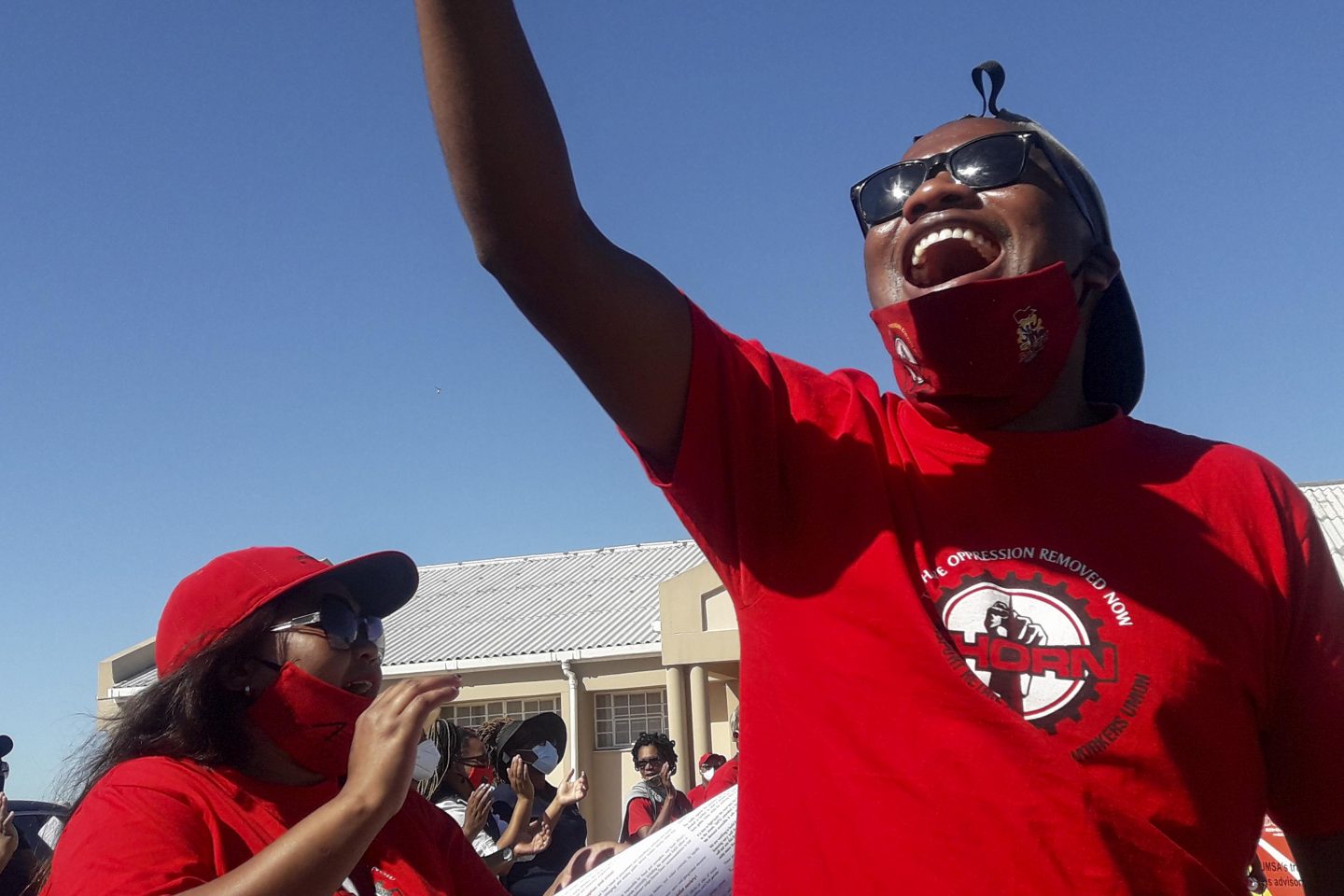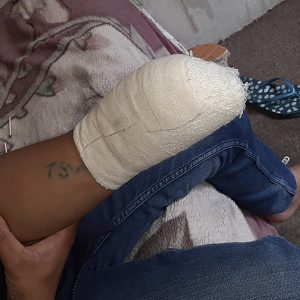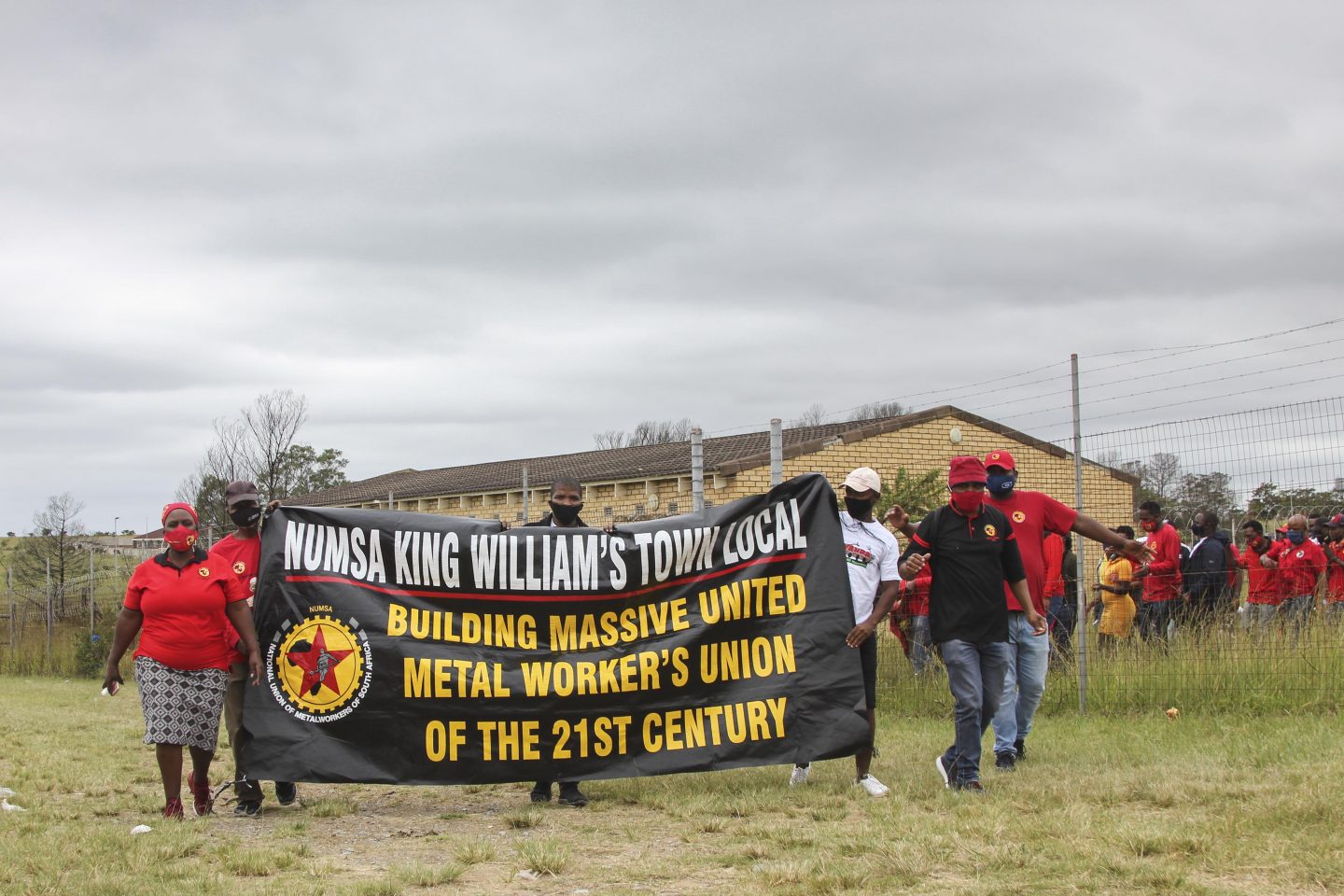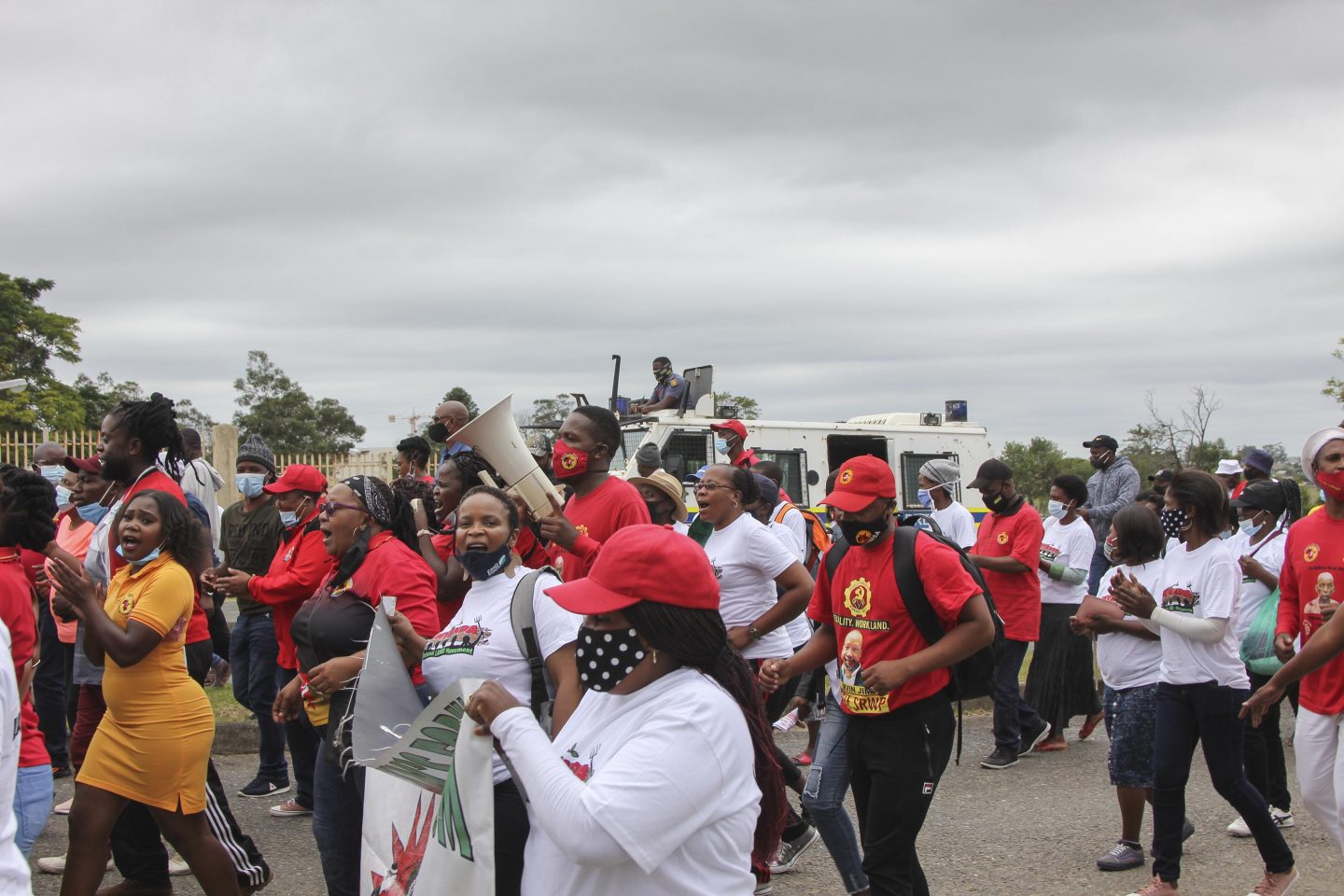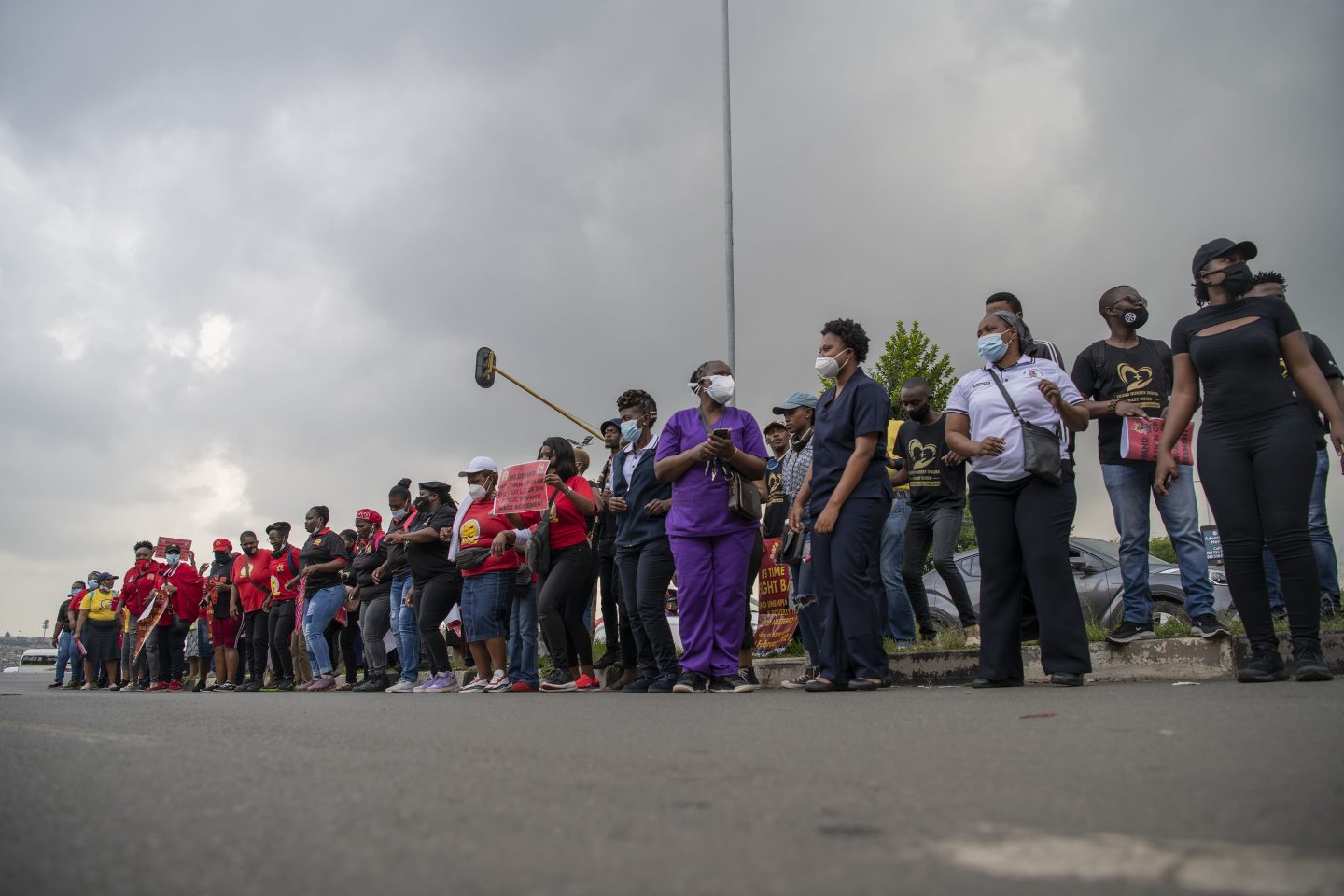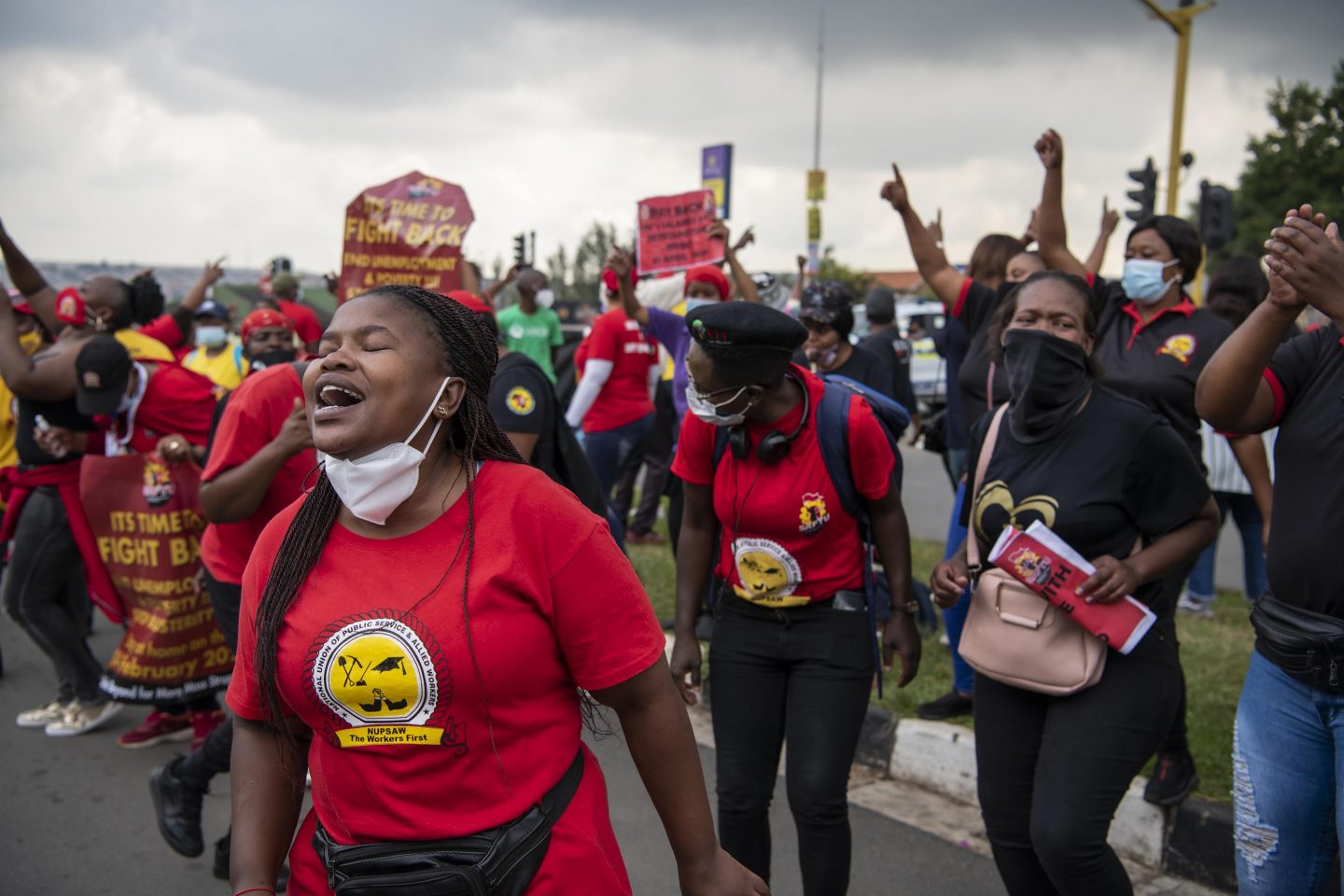Workers in national strike tell Mboweni to ‘Voetsek’
Several unions joined the general strike in South Africa on Wednesday to condemn what they expected from the annual budget announcement: austerity measures that would hurt their members.
Author:
25 February 2021
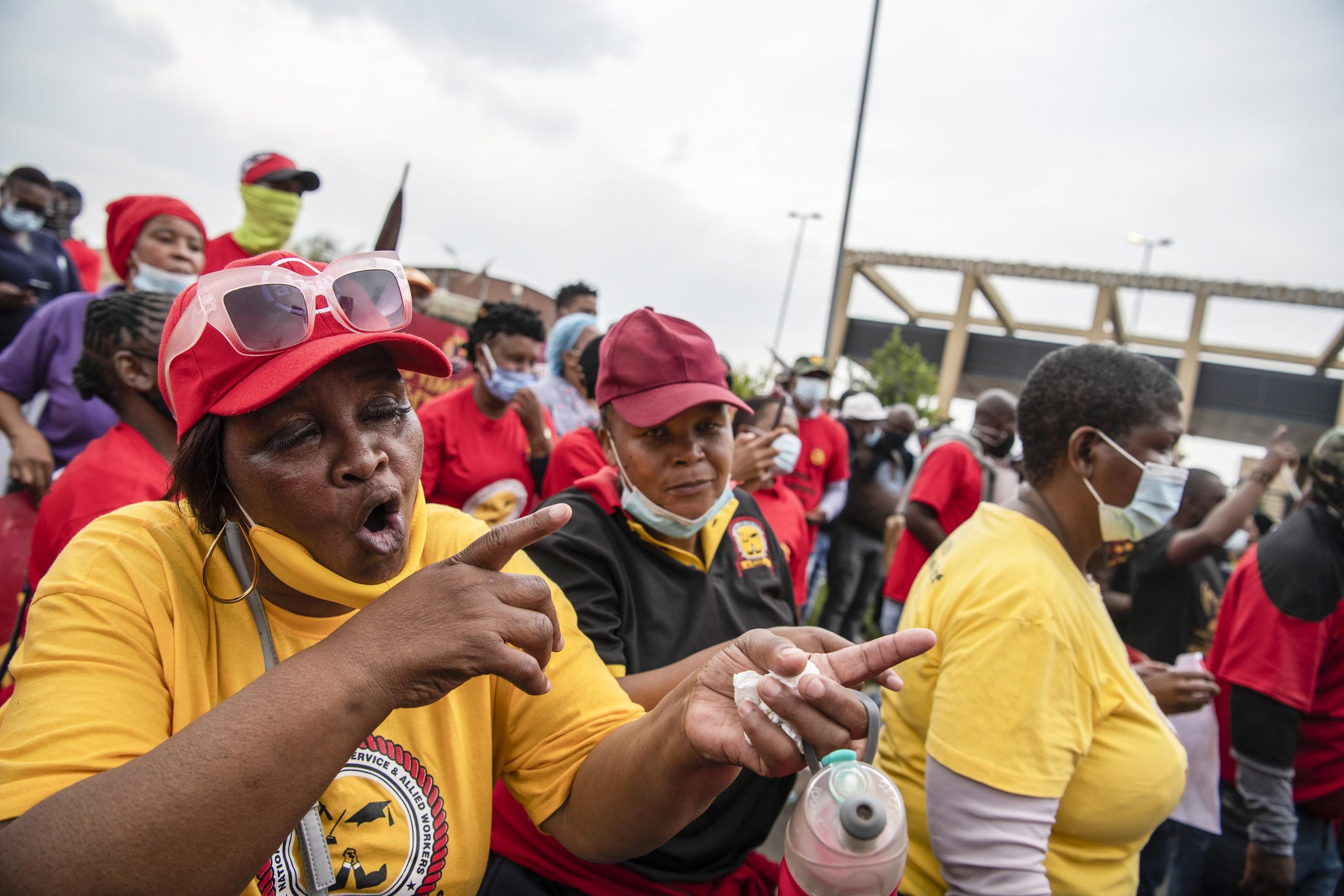
Finance Minister Tito Mboweni can “voetsek” with his austerity measures and budget cuts, according to several hundred marchers at a protected general strike held by the South African Federation of Trade Unions (Saftu) on Wednesday in Gqeberha, formerly Port Elizabeth.
About 700 members of Saftu, the Congress of South African Trade Unions, the National Education, Health and Allied Workers’ Union, the Democratic Nursing Organisation of South Africa and the South African Transport and Allied Workers Union took part in the strike, along with members of the Unemployed People’s Movement, based in Makhanda, the Treatment Action Campaign and the workers’ organisation Cry of the Xcluded.
Backed by a motorcade of about 25 cars, the strikers marched about 11km from the Nangoza Jebe Hall in New Brighton to City Hall in central Gqeberha. They came to a standstill twice at different on-ramps to the N2 highway, and many on-ramps were effectively shut down during the four-hour march. The organisers urged the strikers to wear masks and keep their distance owing to Covid-19, which is why a motorcade also formed part of the protest.

The largest turnout of the national strike was in Durban, while in Cape Town there were stun grenades fired and arrests made outside Parliament, where Mboweni was delivering his budget speech. Andre Adams – who is recovering from a stroke and has been a leader in the municipal workers’ union for 26 years, first in the South African Municipal Workers Union (Samwu) and now in the Democratic Municipal and Allied Workers Union of South Africa (Demawusa), was one of those arrested. In Johannesburg, there was a picket outside the Chris Hani Baragwanath Memorial Hospital. The National Union of Metalworkers of South Africa (Numsa) also handed a memorandum of demands to ArcelorMittal in Vanderbijlpark where three workers, Thami Molefe, Lesenyeho Mofokeng and Mpho Madumisa, died in a control room.
Numsa demanded a health and safety audit be conducted throughout all ArcelorMittal operations in South Africa, the company’s CEO Kobus Verster be held criminally and personally liable “for the untimely death of our members which is the direct responsibility of the accounting authority”, and an inquiry into the deaths of the three workers.
Related article:
Saftu national organiser Lebohang Phanyeko said the strikers’ demands were directed at President Cyril Ramaphosa. “We know very well that this is the last memorandum we are going to submit. The South African government must make sure they tax the rich. We know [Wednesday’s] budget will be anti-poor, anti-development, anti-worker,” he said. He also appealed to the police to support the strike because they, as public servants, will also not receive meaningful salary increases over the next three years.
“Down with the ANC! Voetsek Ramaphosa! Down with corruption,” said Phanyeko, adding that a series of general strikes would be held over the next year in which city centres would be occupied and “we won’t move an inch”.
What’s in a name?
Andile Bloko, Eastern Cape chairperson of Numsa and provincial secretary of the Socialist Revolutionary Workers’ Party (SRWP), said Port Elizabeth’s name change, announced on 23 February, was “nothing to be excited about. It should have been done in 1994. The whole country needs to be decolonised. Today more than 60 workers were retrenched at the airport, yet they are busy changing names.”
Siphiwo Ndunyana, Eastern Cape coordinator of Demawusa and one of the strike organisers, said: “Our people are beyond poor. We will close this town down. We are here to show our anger against the minister of finance’s austerity against our people.”
Numsa, Saftu’s largest affiliate, said before the strike that it supported these protests because the Covid-19 pandemic had proved that the Black working class was made to “suffer through the lockdown with no support” while being retrenched and downsized, and endured the lockdown “in shacks with no water or electricity, surrounded by the squalor of townships”.
“South Africa’s capitalist system is racist in character, and that has not changed much since the dark days of apartheid, which is why the African majority has yet to experience genuine freedom and equality,” said Numsa.
Looming hardships
The SRWP said workers needed to oppose the ANC government’s intention “to impose further hardships and suffering on the working class in defence of their wealth and profits”. SRWP general secretary Motebang Oupa Ralake said the low public sector wage increases and looming budget cuts of billions of rands spread among all departments were “a massive assault on the living standards of the working class and even the middle classes”.
Saftu general secretary Zwelinzima Vavi said the strikers demanded the creation of “a socialist democracy where the economy is under common ownership, management and control of the working class” with nationalised industries and a minimum wage of R12 500 a month. Saftu also wanted all retrenchments to be put on hold while a massive public works programme, state-owned housing and more jobs in farming and fishing were rolled out. More health and safety inspectors should be hired to take action against companies with a high rate of industrial accidents, and company tax must be hiked to 50%, said Vavi.
All land previously “taken from communities by agribusiness and mining houses” should be reclaimed and the government must “reverse historic land dispossessions and looting by settler colonialists, through expropriation without compensation,” Vavi added.

The Saftu unions also wanted workers in polluting industries such as commercial cattle farming, energy, mining, smelting and the automotive sectors to be transitioned to new jobs in clean energy. Saftu asked for a basic income grant of R1 500 a month for everyone, and that the share of GDP devoted to public social spending be hiked from its current 8%, which is less than half of what Brazil spends and a quarter of what Finland and France budget.
The federation also proposed that education be decolonised, with only one, quality education system for all; that the “widespread fraud linked to procurement and consultancy contracts and tenders” be ended; and that tax-dodging companies be prosecuted. Public service workers should also be directly employed rather than through outsourcing.
Finally, Saftu also wanted an end to “racism and patriarchy, homophobia, transphobia and gender power imbalances”.
Additional reporting by Magnificent Mndebele.

